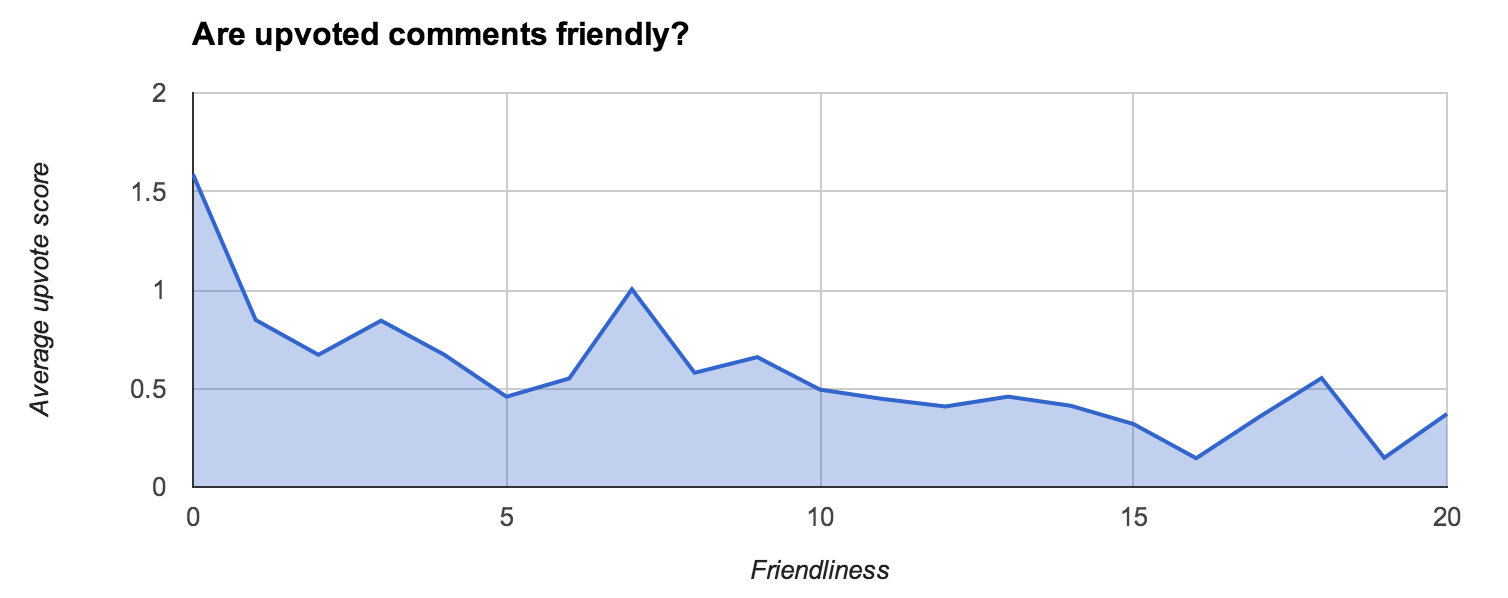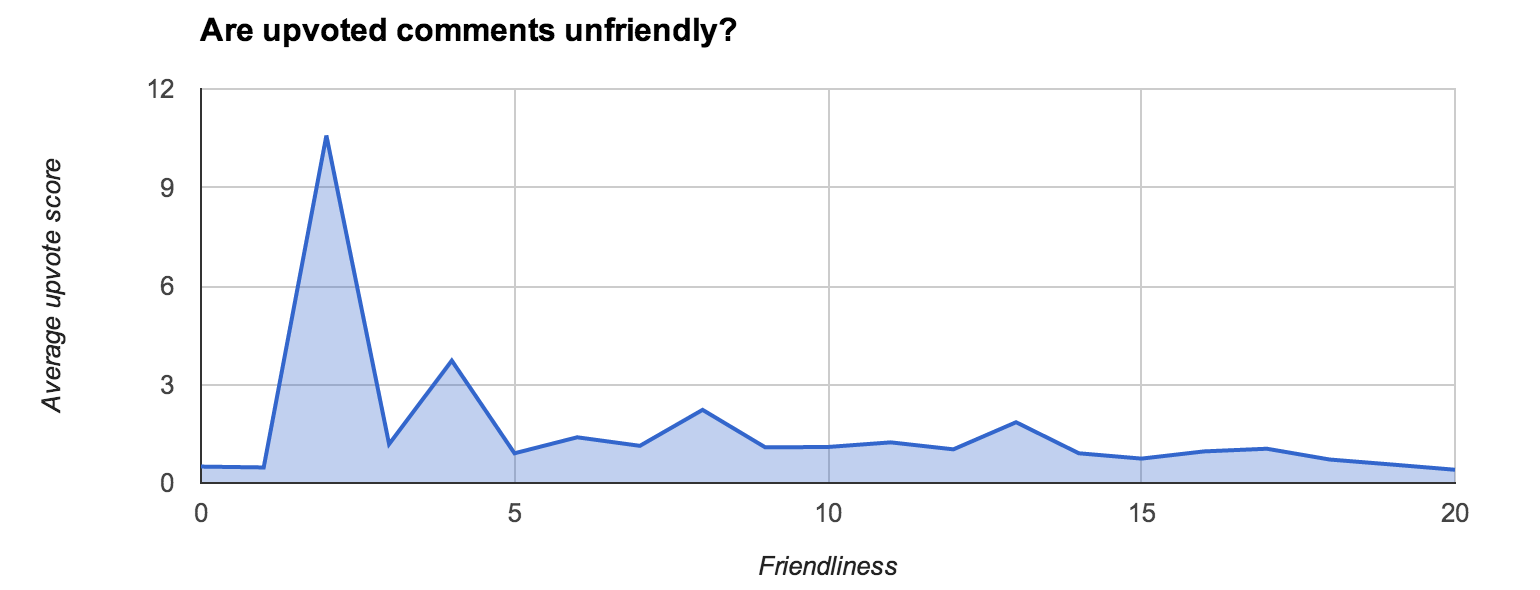Now that we have all sorts of glorious data to work with, we can start to analyze our problem. The first question I had, was how does comment score (i.e., the number of people who click on the up arrow) compare to friendliness:

Therefore friendly comments (as measured by people outside of our community) receive fewer upvotes than unfriendly comments.
Based on Jeff's comment, I took a look a friendliness as measured by the "Unfriendly Score" only:

So that the chart reads the same direction as the other (more friendly comments to the right), I normalized the "unfriendly" score:
20 - UnfriendlyScore
In other words, a comment that none of the outside observers saw as unfriendly gets a score of 20 and a comment that all of the outside observes saw as unfriendly gets a score of 0. This ignores the Mechanical Turk's preference for polite pleasantries like "thanks" and ":-)".
The results are a bit skewed by the highest scoring comment (231 upvotes) which 18 people thought was unfriendly. Since only 24 comments were rated that specific level of unfriendliness, one heavily upvoted comment tips the scales heavily. However, even ignoring the outliers (by looking at the right side of the graph), the trend is clear: unfriendly comments are more likely to be upvoted.
For reference, here are the top 10 comments by score:
This looks like an awful interview question.
I have met people like this. There is always one day when they come and declare: I have found a bug in gcc.
Seriously? Why the 3 close requests? At the moment there are 9 answers, with most of them upvoted. People are interested in this question/topic.
This might be one of those cases where you need to ask yourself: Do I really want to make business with that guy? Another solution would be to press criminal charges against him. Incest is forbidden in most of the world, after all. Finally, your software is broken anyway, because you can (legally) have cycles in a family tree: cousins are allowed to marry in most (all?) western countries.
let me know what company you work for so I know not to ever work for them
Come on, people, the sooner you send-da-codez, the sooner Young Trevor, here, can return to playing video games.
I think we've found a bug. When 1. a question is posted as non-wiki, 2. people answer as non-wiki, 3. the question is changed to wiki, and 4. the question gets > 30 answers, the non-wiki answers are not automatically changed to wiki. Is this a known bug already?
I was like that at 15 or 16. Full sure I knew eveything, and couldn't be told I didn't. It took a very humilating personal failure to snap me out of it.
@Mike Baranczak whether I agree with Scott on OpenID being or not, he is generally very open to technologies that aren't Microsoft-specific. Does he have a vested interest in Microsoft? Sure! But his tweet offered absolutely no marketing advantage for Mic
Why is VB/VB.net so frequently used today, This is a bit like asking "Why are mules/trucks so frequently used today in transportation?"
(Only one of these comments was deleted: #7. Number 11 is interesting too: "This is a great question to farm badges. A guy with 11 rep has a gold badge. Hilarious." It garnered 8 friendly votes and 10 unfriendly. Sarcasm can be difficult to detect.)
None of these comments were rated higher than 7 on the friendliness scale by outsiders. We might disagree about how useful these comments might be, but we ought not to disagree that to a first-time user, they come off as either unfriendly or neutral. Unambiguously friendly comments (according to an outside observer) are substantially less likely to gather a lot of upvotes. Since highly rated comments are more visible to users than other comments, the system of voting on comments seems to reduce the odds that someone discovering a question via Google will see a friendly comment.
When I look at this sample of what the community considers its best comments (measured by upvotes), I'm struck again by the truth of Sturgeon's Law. Whatever you might think about the above comments, I'm sure you'll agree that many, if not most, of them could be safely deleted without making SO any worse off. Of the 7,000 comments in this sample, only 685 were deleted.
The only way to avoid the certain conclusion of Sturgeon's Law is to have someone curate comments. 90% (if not more) of photographs are crap, but when you go to a gallery the percentage drops dramatically. That's because someone evaluated each piece and only showed the best. I think our answers are of high quality (in general) because we all work together to select the best and even improve upon the best. Comments don't work that way.
Conclusion
From this dataset, it seems that high scoring comments are not often perceived as "friendly" by outside observers. It also seems that comment voting fails to surface the most useful comments as a rule.
If "friendly" is one axis a comment can be judged on and "useful" is another, it seems that score is at best orthogonal to both. People vote on comments for any-old reason: useful, funny, interesting, but mostly funny.


